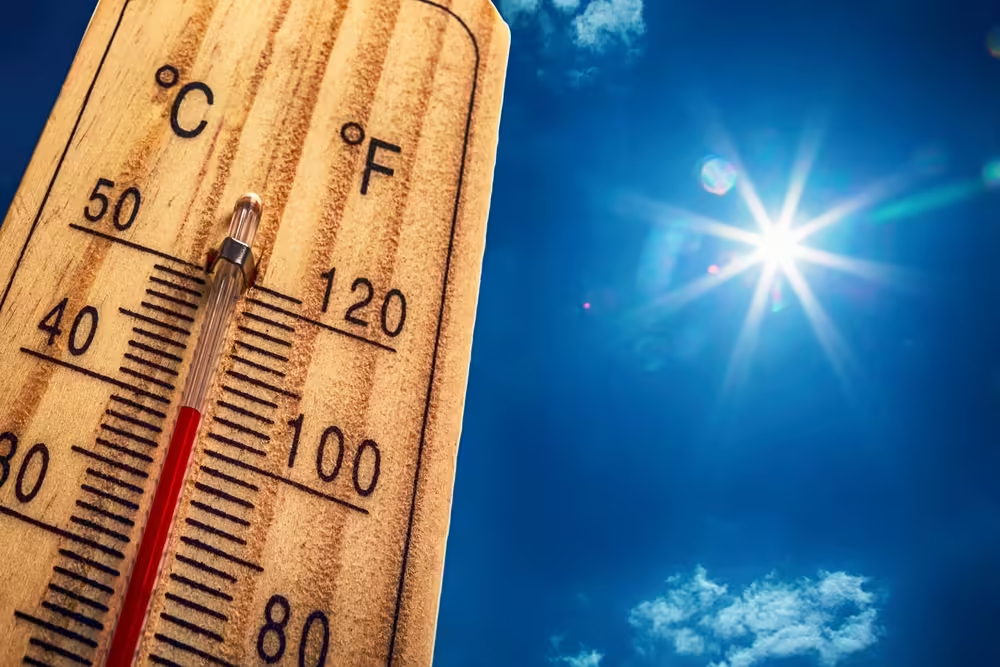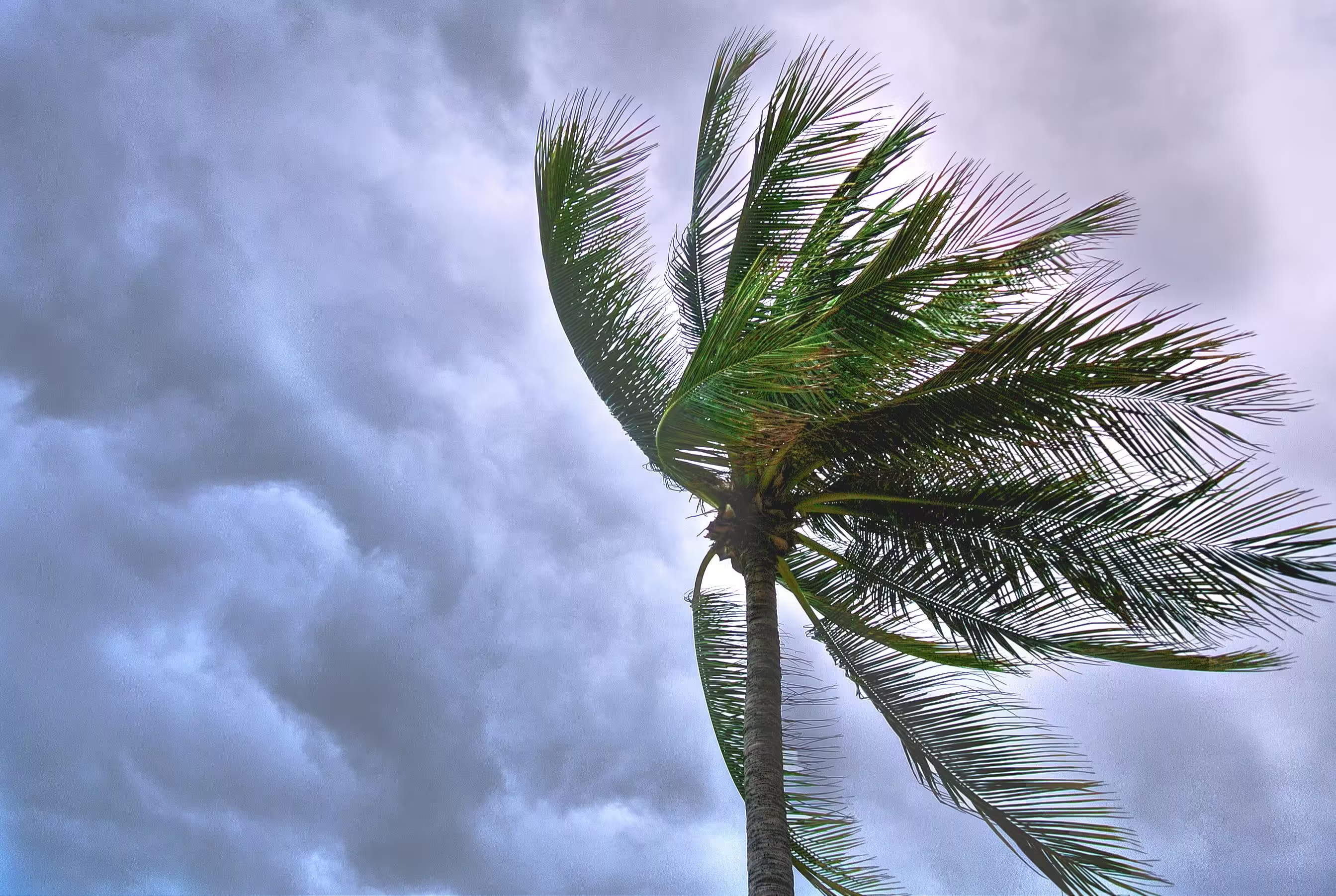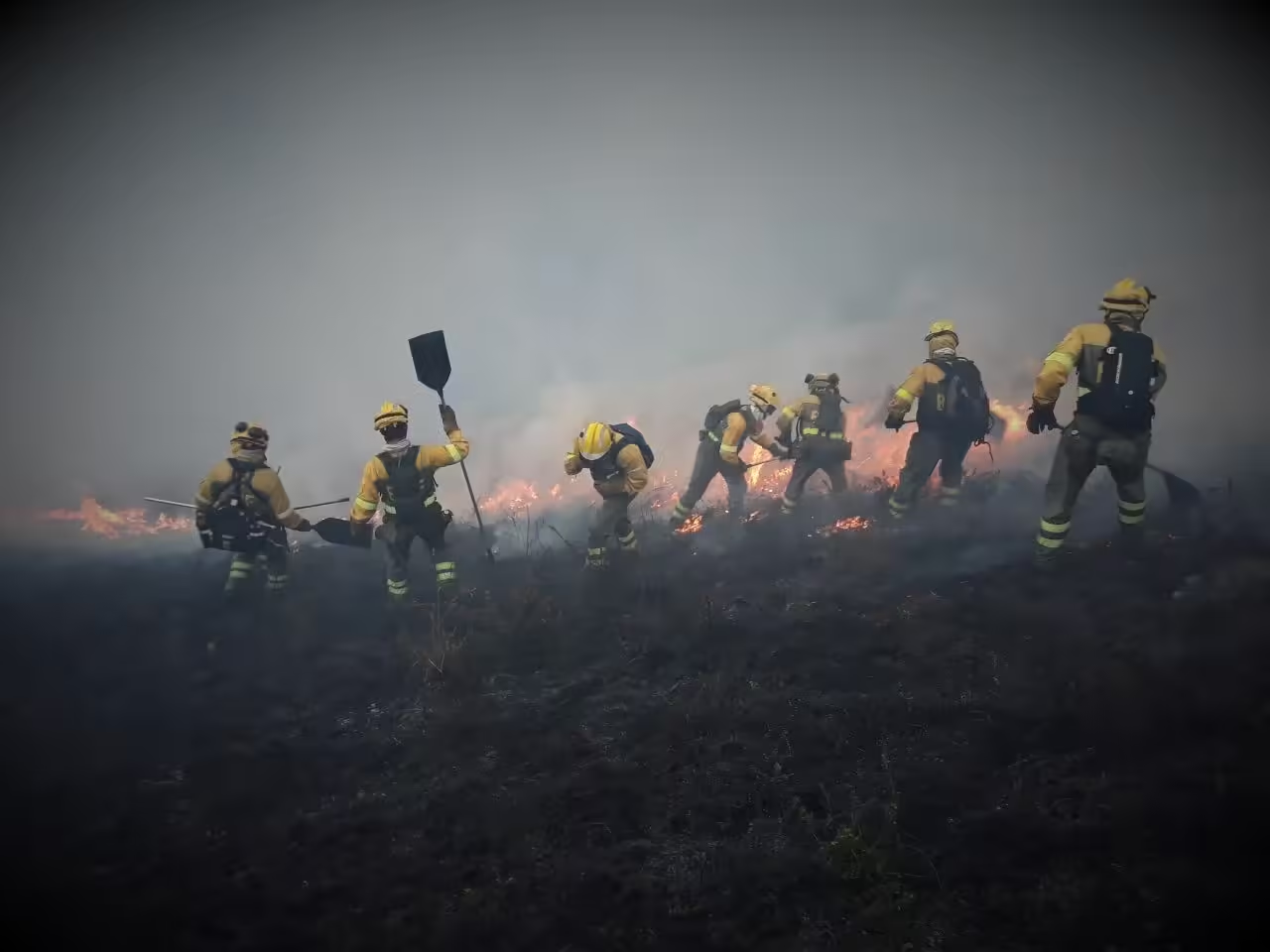Spain Braces for Fourth Heatwave: What to Expect This Weekend
Spain is bracing for its fourth heatwave of the summer, set to begin on Friday, August 9, and last until at least Sunday, August 11. Temperatures are expected to soar above 40°C, with the possibility of breaking previous records. This heatwave comes during the ‘canícula,’ the hottest period of the year, which officially started on July 15 and will continue until August 15.
The Weather Conditions Behind the Heatwave
Several factors are contributing to this intense heatwave. A high-pressure ridge at around 5,500 meters and the Azores high-pressure system to the west of the peninsula are causing the air to heat up more than usual. Additionally, a mass of very warm air over Spain will become even hotter in the coming days. This, combined with intense sunlight and a southern wind that will dominate the weekend, is expected to drive up temperatures significantly.
When Does the Heatwave Begin and End?
Temperatures will start rising on Thursday, August 8, but the heatwave will officially begin on Friday and last until Sunday. By the start of the following week, temperatures are expected to gradually decrease, although many areas will continue to experience hot conditions.
Eleven regions in Spain have been placed under yellow and orange alerts for extreme heat on Friday, with orange alerts in Aragón, the Balearic Islands, Castilla y León, Castilla-La Mancha, Catalonia, Extremadura, and the Community of Madrid.
The Hottest Areas of the Country
On Friday, temperatures will exceed 40°C in the Tajo, Guadiana, and Guadalquivir valleys, and similar temperatures will be reached in the middle Ebro region. On Saturday, the heat will spread to more areas of inland Andalucía and the southern plateau. Alerts for high temperatures are expected to remain in place throughout the weekend.
Cities like Córdoba could see temperatures reach 43°C on Sunday, while Sevilla, Ciudad Real, Madrid, Zaragoza, and Bilbao may experience temperatures exceeding 40°C, with Bilbao potentially hitting 42°C. Some areas in La Rioja, southern Navarra, and the interior of the Basque Country could see temperatures up to 16°C above normal.
Hot Nights and Tropical Conditions
Sleeping might be difficult in the coming days, as nighttime temperatures are expected to remain high in many regions. Cities like Almería, Córdoba, and Toledo could experience nighttime temperatures around 26-27°C. The heat will also be felt in the interior, northern regions, and the Balearic Islands, with minimum temperatures exceeding 20°C in parts of Cantabria and southern Galicia. Tropical nights are expected in much of Spain, except in higher altitude areas.
Will It Rain Anywhere in Spain?
High-pressure systems will maintain atmospheric stability across most of Spain, reducing the likelihood of rain. However, isolated thunderstorms may occur due to the intense heat. If thunderstorms do develop, they might not bring much rain, which increases the risk of wildfires due to lightning strikes and dry conditions.
On Friday, thunderstorms are more likely in the eastern mountain ranges of the peninsula, from the Pyrenees to the Penibético system. On Saturday, the risk of storms will decrease, though isolated showers may still occur in the northern third of the peninsula. On Sunday, with the arrival of slightly cooler air from the north, there is a possibility of afternoon thunderstorms in the northern and eastern parts of the peninsula, particularly in mountainous areas.
Safety Tips for Extreme Heat
When temperatures soar, it’s important to take steps to protect yourself and others from the dangers of extreme heat. Here are some key safety tips:
1. Stay Hydrated
- Drink Plenty of Water: Make sure to drink water regularly, even if you don’t feel thirsty. Avoid alcohol and sugary drinks, which can dehydrate you.
- Eat Hydrating Foods: Opt for fruits and vegetables with high water content, like watermelon, cucumbers, and oranges.
2. Keep Cool
- Stay Indoors During Peak Heat: Try to stay inside during the hottest part of the day, usually between 12 p.m. and 4 p.m.
- Use Fans and Air Conditioning: If you don’t have air conditioning, use fans and keep windows and curtains closed to block out the heat. Visit air-conditioned places like shopping malls or libraries if needed.
- Take Cool Showers: A cool shower or bath can help bring your body temperature down.
3. Dress Appropriately
- Wear Light Clothing: Choose loose-fitting, lightweight, and light-colored clothing to help keep cool.
- Use Sun Protection: Wear a wide-brimmed hat, sunglasses, and apply sunscreen with at least SPF 30 to protect your skin from sunburn.
4. Protect Vulnerable People
- Check on Others: Check in on elderly family members, neighbors, and anyone who might be at higher risk during extreme heat, such as those with health conditions.
- Keep Children and Pets Safe: Never leave children or pets in a parked car, even for a short time. The temperature inside can rise quickly to dangerous levels.
5. Avoid Strenuous Activities
- Limit Physical Activity: If possible, avoid heavy physical work or exercise during the hottest parts of the day. If you must be active, take frequent breaks in the shade or indoors.
6. Recognize Signs of Heat-Related Illness
- Know the Symptoms: Be aware of the signs of heat exhaustion, such as heavy sweating, weakness, dizziness, nausea, and headache. If you or someone else shows these symptoms, move to a cooler place, rest, and drink water. Seek medical help if symptoms worsen or if heatstroke is suspected (e.g., confusion, high body temperature, or loss of consciousness).
For the best tips on staying cool, click here.
Let us know what you think in the comments…
Thank you so much for your support! Reach out to us on Facebook and Instagram
For those interested in relocating to Spain we have created a Facebook Group How to Move to Spain to help you throughout the process. We will provide helpful free printables to keep you on track, online events to inform and support your journey, and above all create a community where you can ask questions and get advice. Please feel free to join!
Image: Shutterstock/Marian Weyo
Share this content:




1 comment